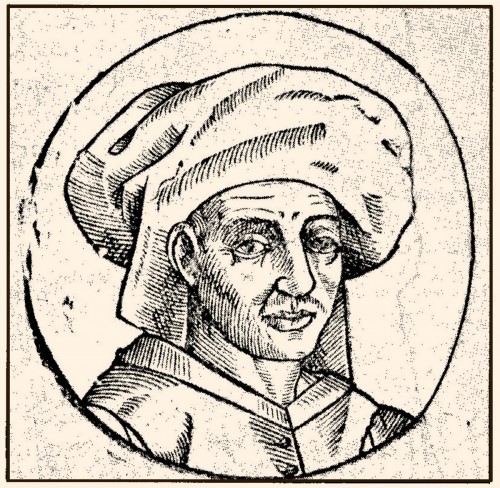Josquin des Pres, one of the great founders of renaissance polyphony, died 500 years ago on 27 August 1521. He had, like many other composers born in northern France and Flanders, spent much of his career in Italy, working in Milan for the Sforza family, singing in the Sistine Chapel in Rome, and acting as maestro di cappella for Duke Ercole d’Este in Ferrara, before ending his career as Provost of the collegiate church in the town of L’Escaut sur Condé on the French-Belgian border, near where he had been born.
Josquin was one of the first composers to have had his music printed: in 1502 Petrucci in Venice published a book of his masses, making his music accessible to a far wider audience than would otherwise have been able to hear it. This revolution established his position at the forefront of musical fashion, and led to his being held up by later generations as being princeps musicorum (a master of musicians) and ‘master of the notes’ (Martin Luther).
Josquin’s music was played by the ensembles of newly developed instruments around 1500, such as the viol consort, and although he did not write much specifically instrumental music, his songs and sacred music were performed without words. Textless pieces by Josquin were copied into manuscripts used by noble patrons and their musicians, such as Isabella d’Este in Ferrara and Mantua, and Petrucci’s ground-breaking publication Odhecaton A (Venice, 1501) also included a number of pieces by him. Sometimes Josquin took well established favourites, such as ‘De tous bien plaine’ by Hayne van Ghizeghem, discarding the original bass part and replacing it with a close canon for two basses (they both read the same line of music, but one starts just a minim after the other in a frenetic chase).
Musicians around the world are marking this Josquin centenary with special programmes, and the Rose Consort are including one of his motets in two programmes of music that present a mixture of continental and native music in sixteenth century English manuscript collections (at Benslow Music, Hitchin on 13 July 2021, and a streamed performance from York Early Music Festival on 17 July). We are cheating a bit, as there is no music by Josquin in the manuscripts used for the rest of these programmes, but his music was known in Elizabethan England, as there is a lovely portrait of four unidentified children dating from around 1560 that shows a copy. In 2015 the musicologist Kerry McCarthy published an article (‘Josquin in England: an unexpected sighting’, Early Music Vol. 43/3) that identified the book held by the oldest boy in the portrait as the bass partbook of Josquin’s Domine ne in furore, a four-part motet printed in Nuremberg in 1538.
So we will play Josquin’s motet on four viols, as our commemorative contribution to the 500th anniversary of Josquin’s death. It will be interesting to see how it fits into our programmes of rather later music by English and continental composers, who owed so much to the generation led by Josquin around 1500. Without his music, and that of his contemporaries, the flowing counterpoint that we love to play would not have existed.
The family portrait, including Josquin’s motet, can be seen at: imslp.org/wiki/File:Master_of_the_Countess_of_warwick_four_children.jpg





